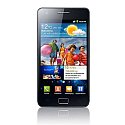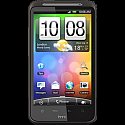
 People who know suggested I should move phone operations from HTC Desire HD to Samsung Galaxy S2 so I have. My main motivation (and you have to take this as read) is not to just have the latest and greatest gadget. Things are moving so quickly in the tech world that I need to stay in touch with the art of the possible. It would also be a good exercise in seeing how easy it was to do the migration.
People who know suggested I should move phone operations from HTC Desire HD to Samsung Galaxy S2 so I have. My main motivation (and you have to take this as read) is not to just have the latest and greatest gadget. Things are moving so quickly in the tech world that I need to stay in touch with the art of the possible. It would also be a good exercise in seeing how easy it was to do the migration.
In reading this post you have to consider that I am not a gadget freak and I don’t spend my life understanding the nuances of different versions of OS or processor hardware specifications. I may therefore make mistakes in setting up a new phone that the geek would not but in this I can’t be any different to most people. My other criterion for success is that I shouldn’t have to rtfm, ie have to look something up in the online support.
I have two benchmarks for comparison – the HTC Desire HD and the iPad both of which broke new ground for me. iPad was very easy to set up but has clear deficiencies and the HTC represented a learning curve in smartphone tech.
The features I use most on the HTC are Tweetdeck, Dropbox, camera, voice recorder, internet and gallery, mail, calendar, sms and foursquare with a smattering of Bambuser,and ESPN (seasonally) thrown in. I use the internet rather than plugins to access Facebook (keep in touch with my kids) and LinkedIn (rarely) as I haven’t found these plug ins to be much cop. For some reason I don’t use the phone for Empire Avenue and I’m actually currently struggling to get my brain round why I might want to access that particular network.
So in moving from HTC Android to Samsung Android it would be useful for me to see how seamless
